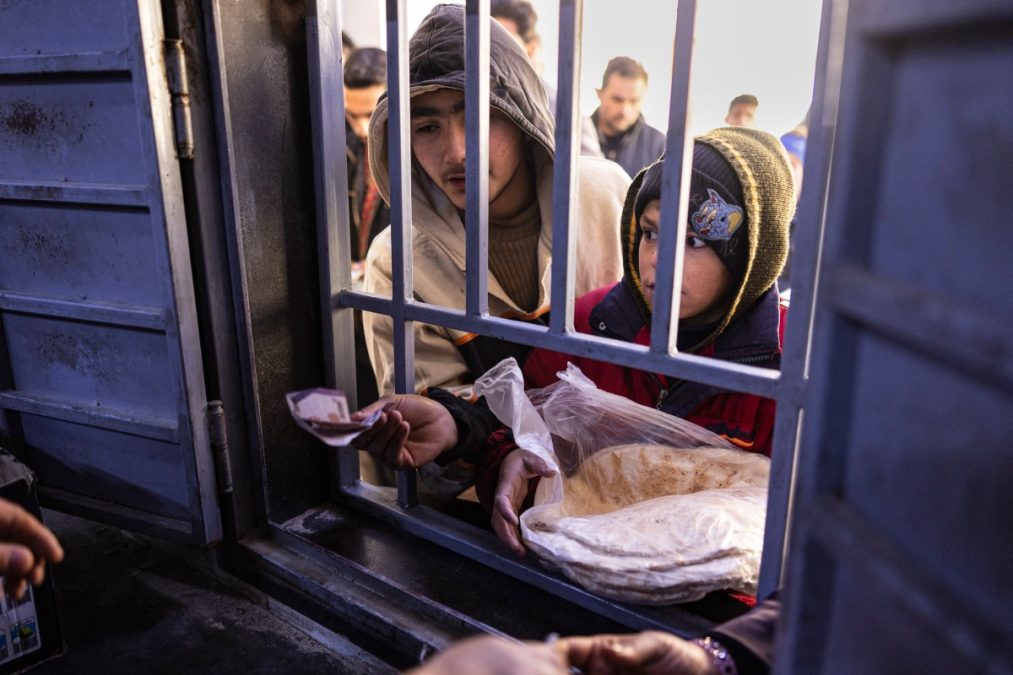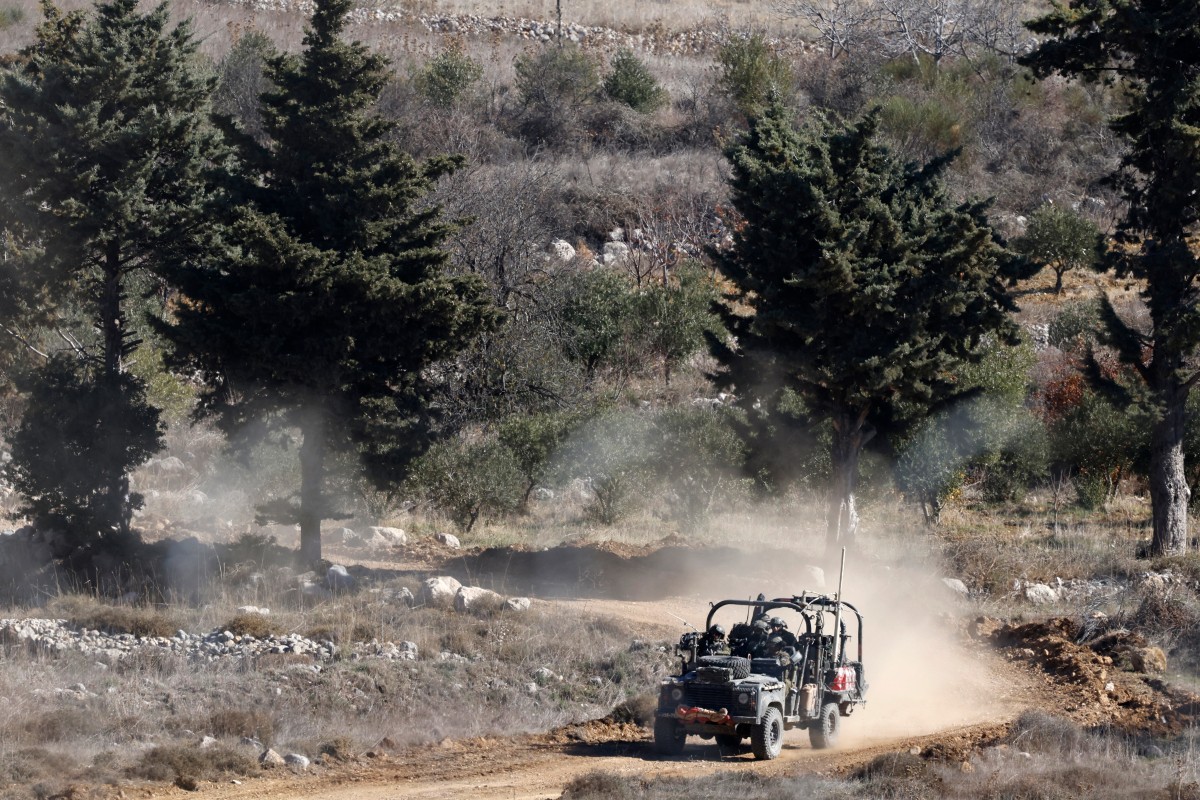Jerusalem, Undefined – The Israeli government on Sunday approved a plan to double the population of the occupied and annexed Golan Heights, following the fall of Bashar al-Assad in Syria, the prime minister’s office said.
The government had “unanimously approved” the 40 million shekel ($11 million) “plan for the demographic development of the Golan… in light of the war and the new front in Syria and the desire to double the population”, Prime Minister Benjamin Netanyahu’s office said.
Israel has occupied most of the Golan Heights, a strategic plateau, since 1967 and annexed that area in 1981 in a move recognised only by the United States.
Netanyahu said “the strengthening of the Golan is that of the State of Israel and it is particularly important at this time. We will continue to establish ourselves there, develop it and settle there”.
The occupied Golan is home to about 23,000 Druze Arabs, whose presence predates the occupation and most of whom retain Syrian citizenship, as well as around 30,000 Israelis.
Last week, Netanyahu declared that the annexed Golan would be Israeli “for eternity”.
That followed an order he gave for troops to cross into a UN-patrolled buffer zone separating Israeli and Syrian forces since 1974. Troops also seized areas beyond the buffer, including on Mount Hermon.
Israel portrayed the move, which drew international condemnation, as a temporary and defensive measure after what Netanyahu’s office called a “vacuum on Israel’s border and in the buffer zone”, following Assad’s fall.
In the aftermath of Assad’s overthrow, Israel also launched hundreds of strikes on Syria — according to a war monitor — targeting strategic military sites and weapons, including chemical weapons.
On Sunday, the Israeli premier said his country had “no interest in confronting Syria. Israel’s policy toward Syria will be determined by the evolving reality on the ground”.
In a video statement following a phone call with US president-elect Donald Trump, Netanyahu said Syria had attacked Israel in the past and allowed others including Lebanese Hezbollah to do so from its territory.

“To ensure that what happened in the past does not happen again, we have taken a series of intensive actions in recent days,” he said.
“Within a few days, we destroyed capabilities that the Assad regime had built over decades.”
Abu Mohammed al-Jolani, the head of the Islamist-led rebels who toppled Assad who now goes by his real name, Ahmed al-Sharaa, on Saturday accused Israel of “a new unjustified escalation in the region” by entering the buffer zone.
However, he said “the general exhaustion in Syria after years of war and conflict does not allow us to enter new conflicts”.
Washington in 2019 became the first and so-far only country to recognise Israeli sovereignty over the Golan, during Trump’s first term.
Saudi calls Israeli plan ‘sabotage’ of Syria
Saudi Arabia on Sunday condemned as “sabotage” of Syria an Israeli plan to double the population of the occupied and annexed Golan Heights.
In a statement, Riyadh’s foreign ministry expressed “condemnation and denunciation” of the plan, which it called part of “continued sabotage of opportunities to restore security and stability in Syria” after Islamist-led rebels overthrew president Bashar al-Assad one week ago.
Qatar delegation in Syria
A Qatari delegation has arrived in Syria and met with officials in the country’s transitional government following the ouster of President Bashar al-Assad by Islamist-led rebels, the Gulf emirate said Sunday.
The diplomatic delegation “arrived in Damascus to complete the necessary procedures for the opening of the State of Qatar’s embassy” foreign ministry spokesman Majed al-Ansari told the official Qatar News Agency in a statement.
“During its meetings with the transitional government in Syria, the delegation reaffirmed the State of Qatar’s full commitment to supporting the Syrian people… following the success of their revolution,” the spokesman added.
Doha closed its diplomatic mission in Damascus and recalled its ambassador in July 2011, early in an uprising against the Assad government that turned into a civil war.
Unlike other Arab countries, Qatar never restored diplomatic ties with Syria under Assad, who was toppled by the 11-day rebel advance that swept through major cities and then the capital Damascus.
Ansari said the Qatari delegation had also “discussed with the Syrian side ways to facilitate the flow of Qatari humanitarian aid and assessed the needs of the Syrian brothers during this important phase”.
This week, an official briefed on developments said Qatar had “established the first channel of communication” with the Islamist group Hayat Tahrir al-Sham (HTS), which spearheaded the ouster of the former government.
The official, who requested anonymity because of the sensitivity of the discussions, added the “focus of the communication with HTS and others is on the need… to maintain calm and preserve Syria’s public institutions during the transition period”.
Qatar said on Wednesday that it would soon reopen its embassy in the Syrian capital Damascus “after completing the necessary arrangements”.
UK in contact with HTS
Britain’s foreign minister said Sunday that London had established diplomatic contact with the Hayat Tahrir al-Sham (HTS) rebel group in Syria, which led the offensive that ousted Bashar al-Assad.
They remain “a proscribed terrorist organisation, but we can have diplomatic contact and so we do have diplomatic contact, as you would expect”, said Foreign Secretary David Lammy.
“We want to see a representative government, an inclusive government. We want to see chemical weapons stockpiles secured, and not used, and we want to ensure that there is not continuing violence,” he added.
“So, for all of those reasons, using all the channels that we have available, and those are diplomatic and of course intelligence-led channels, we seek to deal with HTS where we have to.”








